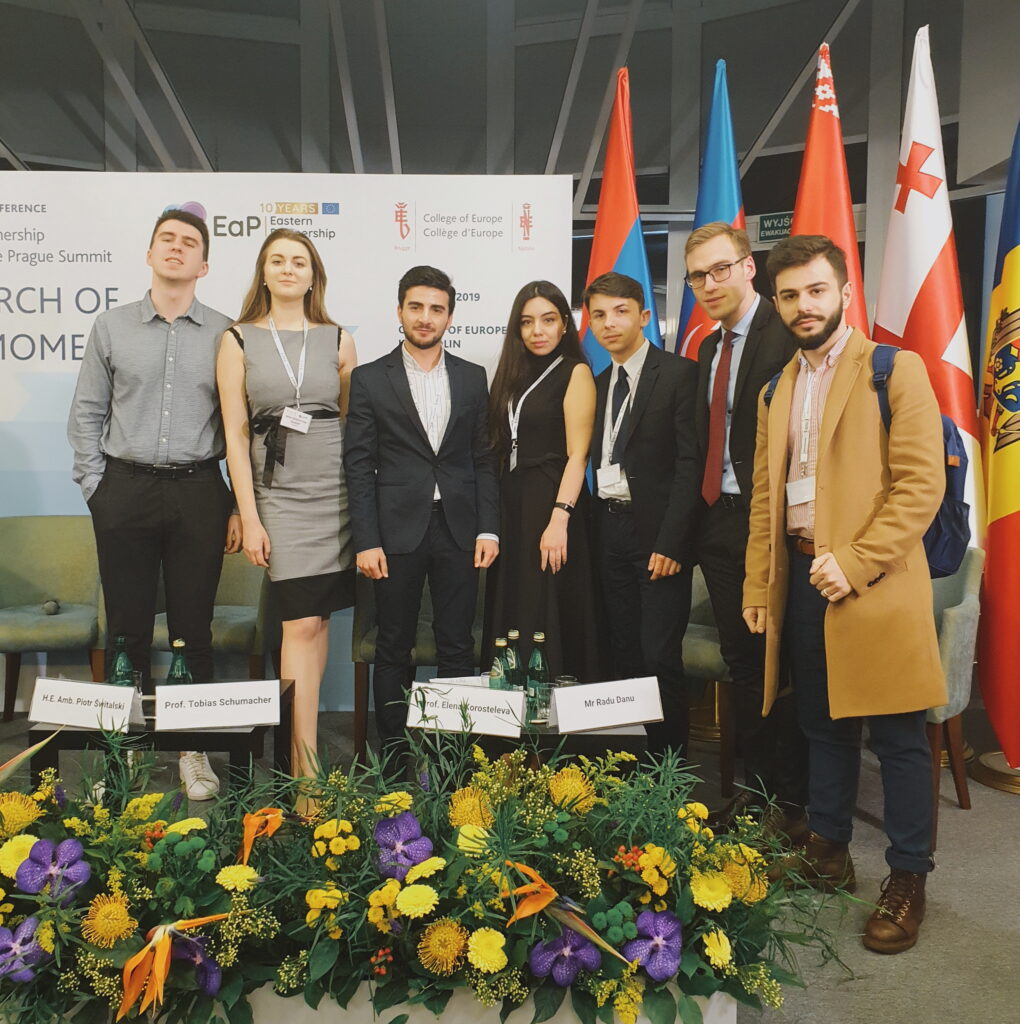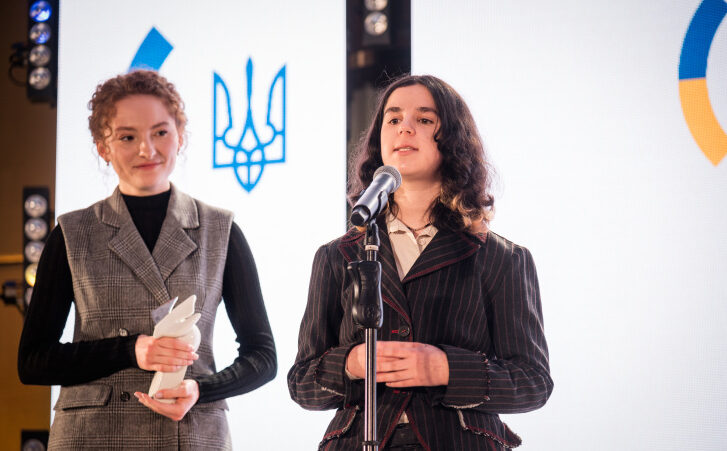
The New Generation Summit at College of Natolin (Warsaw)
10 years have passed since the establishment of the Eastern Partnership Initiative. The participating states Armenia, Azerbaijan, Belarus, Georgia, Moldova and Ukraine have implemented a number of reforms in order to foster democracy development and stability in the region with help of the European Union. In 2017 an ambitious plan of the 2020 deliverables for these states has been set up. The countries have achieved and are currently undergoing myriad positive changes as well. Nonetheless, there are a number of issues in regard to the implementation of successful reforms and actual changes due to a variety of reasons. Although, the EaP states are confronted with political and economic issues, some of the challenges pertaining to the lack of the EU-EaP societal relations. These issues have been raised at the New Generation Summit at College of Natolin on the 27-28th March.
The summit brought approximately 40 young professionals together from the EaP and EU countries to discuss the current issues on the ground in regard to the Eastern Partnership 2020 deliverables implementation. The main issues have been identified and possible solutions have been proposed. The most significant part of the project has been the opportunity to reach out to the officials of DG Near and EU’s External Action Service. Having been given the chance to be part of the high level debates “The Past, Present and Future of the Eastern Partnership” between the Ministers of Foreign Affairs of Poland and Sweden, with participation of theSecretary-General of the European External Action Service, I felt utterly fascinated and excited that I together with my fellows I could engage in actual debates with the EU officials and deliver my thoughts and experience to them, inform them about what changes I see every day, how I would change and improve them. The panel, which was held on the second day, we, the young participants directly delivered our word to the officials by participating ina panel and presenting our work. Apart from that, one of the most essential achievements of the project has been the opportunity for the young representatives of the EU and the EaP to work side by side and identify the problems together, imputing two, often different perspectives in an important work. The working group debates brought impressive and quite realistic results. Hence, the policy document came to be comprehensive, intertwining the challenges and solutions seen from both sides, which made its relevance immensely high and realistic.
Working in mobility and people-to-people contacts group has been the biggest opportunity to deliver my opinion which has been developing for years throughout my practice, youth work and activism in Georgia. The proactive engagement and hard-work of all young participants throughout an utterly intense conference came extremely fruitful after two days. A policy paper was drafted and eventually sent to the European Commission. The major objective of the conference was achieved. The youth viewpoints completed in a single document reached the decision-making level. My working group identified a number of problems, such as uneven engagement between urban and rural areas in the EU-funded projects in the EaP states, lack of information on the initiative and its member-states in the EU public, the misinformation in media and the issue of raising awareness on the EaP importance in the EU. The EaP states and EU are equal partners and one of the main issues that have been identified was also that the EU-EaP relations should be made more mutually beneficial and promotion of the EU in the EaP region should be echoed with the EaP promotion in the EU, including encouraging more EU citizens to participate in educational programmes in the EaP region. The future success of the EaP considerably depends on the EU society and their understanding of the Eastern partner countries, knowing why these countries are important for the EU, and the fact that they are not with the EU just for accruing benefits but to bring mutual profits to the entire European family.
The paramount aspect of the success of the summit, I assume, is that it has been driven by the young professionals. The project made it possible to raise the voice of the youth and fostering them to be heard at decision-making levels. The proposals that were sent out are essential since they can lead to positive changes of the problems, which are observed by the participants on a daily basis through their work and enthusiasm for further approximating their home countries’ ties with the EU. Young people are the chief beneficiaries of the Eastern Partnership Initiative. They are part of the society who observe, evaluate and come up with possible solutions. The major problem is that it is hard for youth to make their voices heard. The New Generation Summit has not only aimed at delivering insightful brainchild for addressing issues on the EaP ground but also has been a highly momentous attempt to tackle the issue of the youth engagement, which is paramount for the EaP states’ future development. The youth engagement in society has become increasingly active throughout the last decade in the EaP states. This part of the society consists of the individuals who deal with numerous challenges and strive for positive change and development. The world is shifting rapidly, hence fostering the youth engagement and empowerment is essential for the present as well as the future of a state and society. The EaP region is not an exception. The youth possess innovative and creative ideas for their own future and they are the key driving force for the future of the Eastern Partnership initiative and by fostering the young people we become more #strongertogether
 The YEAs team
The YEAs team
LATEST

Building Europe: Poland’s experience of joining the European Union and lessons for Ukraine

World Health Day 2024: My Health, My Right

EUREKA MEETS EUROPE – opportunities to develop and study. My experience

Can you wear pink in the workplace?

Go where your deepest fears lie: finding the courage to overcome gender barriers in STEM
More campaign pages:
Interested in the latest news and opportunities?
This website is managed by the EU-funded Regional Communication Programme for the Eastern Neighbourhood ('EU NEIGHBOURS east’), which complements and supports the communication of the Delegations of the European Union in the Eastern partner countries, and works under the guidance of the European Commission’s Directorate-General for Neighbourhood Policy and Enlargement Negotiations, and the European External Action Service. EU NEIGHBOURS east is implemented by a GOPA PACE-led consortium. It is part of the larger Neighbourhood Communication Programme (2020-2024) for the EU's Eastern and Southern Neighbourhood, which also includes 'EU NEIGHBOURS south’ project that runs the EU Neighbours portal.

The information on this site is subject to a Disclaimer and Protection of personal data. © European Union,